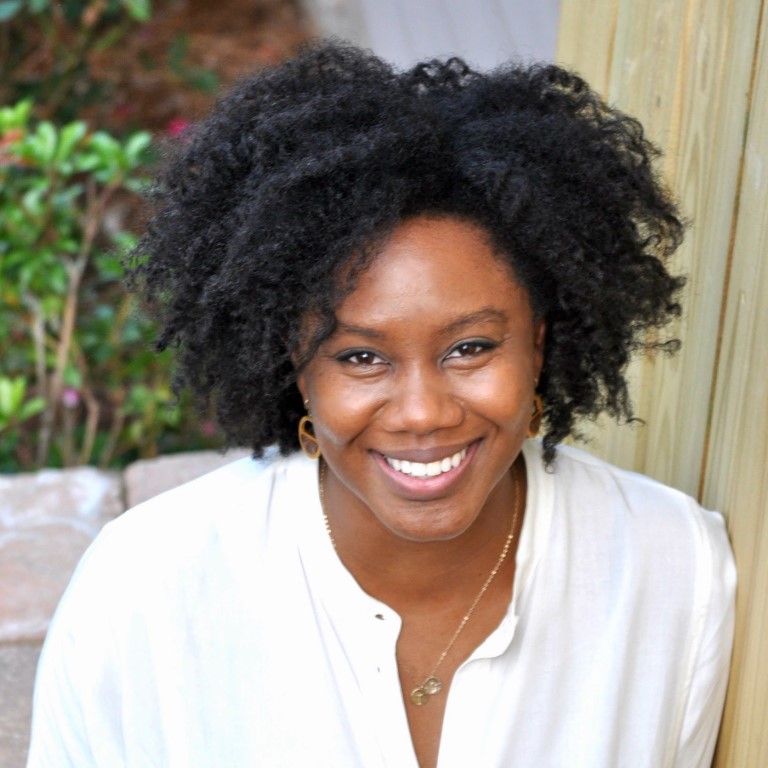Adolescence, encompassing ages 10 to 25, is full of firsts, growing independence and a lot of change. It is also IU researcher Tennisha Riley’s favorite life-stage of human development to study.
Her research, which is focused on understanding the emotional development of Black youth and how social context impacts their emotional well-being, often takes a community engaged approach. She works directly with Indiana youth to gain important insight, which allows her an opportunity to serve as a mentor and to empower adolescents to take an active role in their schools and communities.
“Adolescence is a time unlike any other in your entire life, and there is so much we don’t know,” said Riley, a developmental psychologist in the IU School of Education. “Adolescents are very future oriented and tend to ask the question ‘why?’ all the time. They think in complex ways as they try to figure out what is fair, just and equitable and why that is.”
In spring of 2022, she began working with students in the Monroe County Community School Corporation on a youth-led participatory action research project designed to better understand adolescent emotion in learning settings.
“This approach changes the way youth learn, helping to equal the playing field so they have as much experience and knowledge as the adult,” Riley said. “In thinking about school, and knowing it can sometimes be restrictive, especially for Black youth, we wanted to flip the situation so they feel empowered to engage in the learning process.”
Though the students she engaged with were from different schools, they found a lot of common ground as they came together to discuss racial discrimination at their schools. These students had already shared grievances with their administrations and were not satisfied with the outcomes. They began to look into policies across the country and how it impacts students like them. Riley and Jazlyn Rowan, a graduate research assistant, taught the students how to dive into the research, looking at literature and understanding data.
Their final project was to make a presentation to the school board, advocating for anti-racism policies to be added to the school district’s student handbook. Four of the students went on to receive the City of Bloomington Commission on the Status of Children and Youth’s 2022 SWAGGER Awards for their work.
“When youth are at the forefront of projects, their work often continues even after the project ends,” Riley said. “I think the students we worked with found out that they do have an equal voice, and I am very proud of them. I’m honored that we still serve as allies and consultants for them even now that the project is over.”
Adolescents remain a critical part of Riley’s ongoing research.
With support from IU’s Racial Justice Research Fund, Riley is working to understand how instances of racial discrimination impacts a Black youth’s emotion regulation and how interpersonal relationships can support their emotional well-being. Using an app, Riley and colleagues contact adolescents twice a day to find out what’s happening to them on a daily basis to learn about their emotional experiences.
Riley works with Matthew Aalsma, a professor of pediatrics in the IU School of Medicine, and Tamika Zapolski, an associate professor in the IUPUI School of Science, on the ADAPT study, a statewide initiative working to reduce substance use among justice-involved youth in rural communities. She looks at potential equity gaps for Black and LatinX youth in the continuum of care and examines areas such as how they are referred to treatment, what kinds of treatment they receive and whether it is culturally-relevant.
Finally, she is collaborating with James Brooks, an assistant professor in the IU School of Education, on a project designed to understand how people talk about race and how that impacts biological stress and other mental health outcomes. They will monitor heart rate, which is an indication of stress level and the ability to regulate emotions during stressful situations. While Brooks focuses on interracial and multiracial couples, Riley is looking to better understand how racial and ethnic youth and their families talk about racial discrimination, and whether the way they talk about it impacts their health outcomes.
Riley hopes her research will positively impact the way people view and work with adolescents.
“I hope the work I currently do highlights how systems are not just unequal or inequitable for youth of color because of race, but also how there’s this inequitable hierarchy between who knows what,” Riley said. “I hope there is more community involvement. I hope the community folks can trust science, and that science can trust that the community knows what they’re talking about when they share about their experience. I hope it impacts the world in that way.”


